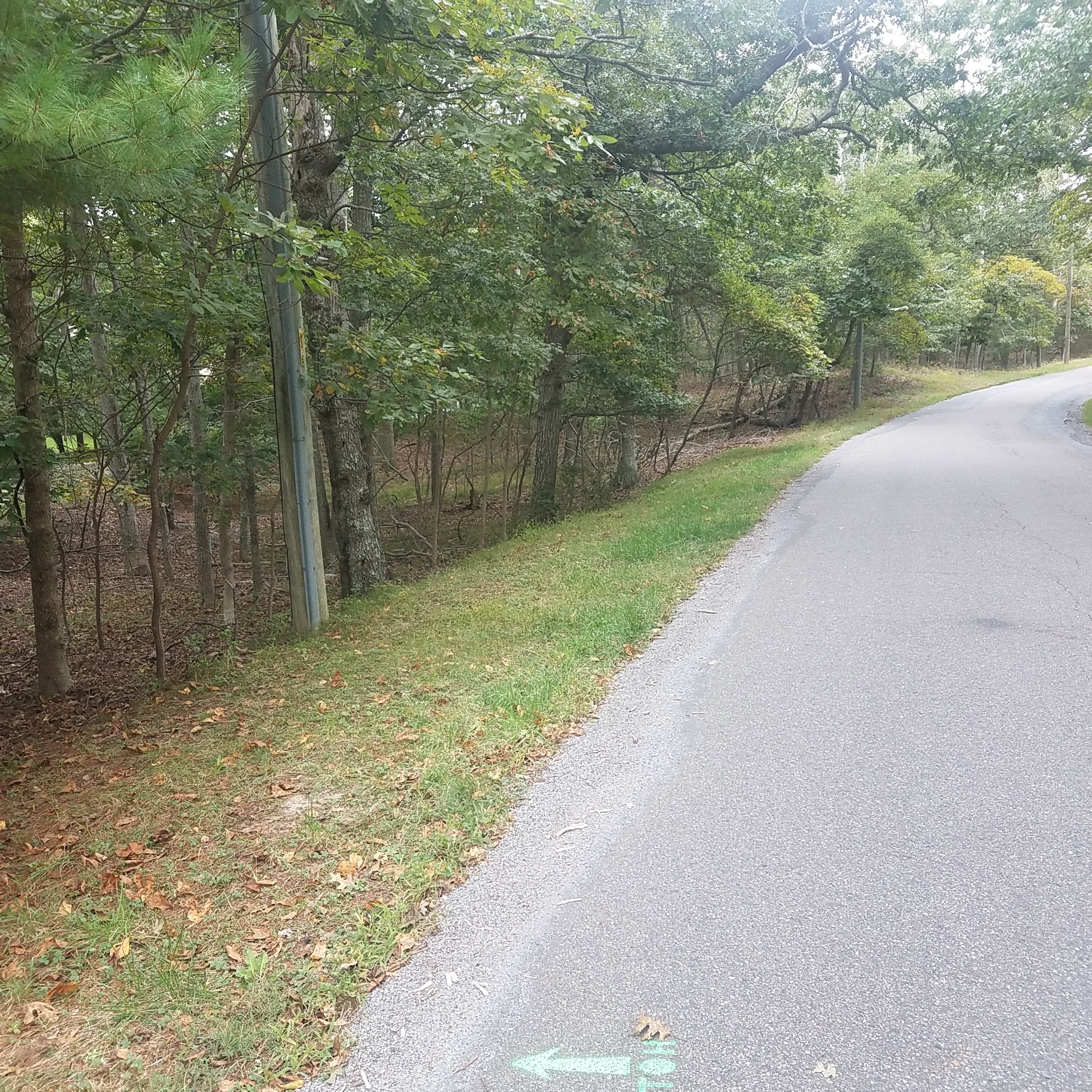Battle Over Road Intensifies In East Hampton

What at first seemed like an innocuous internal land transfer buried in an East Hampton Town Board agenda may be headed to the Suffolk County District Attorney’s office.
Last summer, a legal notice appeared in The East Hampton Star. It stated that Galaxy Group Investments LLC, the owner of a large parcel of land on Cross Highway in Amagansett, was willing to “grant the town Scenic, Conservation and Trail Easement in perpetuity” to a long, narrow stretch of land next to the Galaxy parcel that is “a portion of the Paumanok Path trail.”
Galaxy would grant the easement, and in return the town would pass title to Galaxy by condemning the land in question.
It was almost a done deal when David Buda, a retired New Jersey attorney, and current Springs resident, objected, arguing that Galaxy didn’t own the land in question. The 50-foot-wide piece runs through three acres and totals about 33,000 square feet. In other words, the corporation was attempting to grant an easement to land it didn’t own, Buda said.
Since then, tempers have flared and some have accused the East Hampton Town Board’s Democratic majority of trying to push through a sweetheart deal for longtime party boss Chris Kelley.
The latest salvo is an opinion piece written by three attorneys— Buda, Jonathan Wallace, and David Gruber. They conclude it is a “legal impossibility” to proceed with the deal with Galaxy. Kelley’s involvement, Buda and Gruber charge, is more than just political: his law firm, Twomey, Latham, Shea, Kelley, Dubin, and Quartararo LLP represents Galaxy.
Michael Novogratz, a billionaire with local ties, “appears” to control Galaxy, according to Buda.
“It is an open secret that 58 Cross Highway East was purchased with the intent to relocate the former residence of architect Francis Fleetwood from its existing location at 85 Ocean View Lane, Amagansett. That property was purchased in July 2016 from the Estate of Mr. Fleetwood by another entity under common control: Novofam, L.L.C., which appears to be controlled by Novogratz. The Ocean View property borders the swath of land being turned over to Galaxy,” Buda wrote.
Novogratz, who could not be reached for comment, has made large donations to Democrats in the past.
Buda and other critics contend there is an advantage for Novogratz. Obtaining 33,000 square feet of additional space will increase his building envelope and also make it easier to meet required setbacks.
In their missive the three attorneys wrote, “even if the grant of easement were somehow possible, the subject portion of the road cannot be abandoned.”
David Lys, the newest board member, who is running to keep the seat he was appointed to in January, said in an interview this week that he was no longer comfortable going forward with the deal until “true ownership can be determined.” He added, “A lot of information was mishandled and never got to us.” But Lys said he didn’t think the town board was influenced because Kelley’s law firm was handling the case.
Gruber, who lost the Democratic primary to Lys in June, believes Lys was more than willing to push the deal through until it became apparent there was going to be significant opposition and perhaps a court battle — if not a DA’s investigation — had the board proceeded.
Lys, said Gruber, “is falsely claiming to have been skeptical of the transaction for not receiving the necessary information.” He charged town board members “never asked the town attorney to do his job, leaving David Buda, Jonathan, and me to do it.”
“I saw it but didn’t read it,” said Stephen Latham of the document prepared by Buda, Gruber, and Wallace. Latham is Kelley’s law partner and the attorney who has handled the Galaxy application. “It was a few weeks late as the record had been closed by the town board at the last hearing on September 20, so it’s a legal nullity. I suspect its real purpose was to give Gruber et. al. an excuse to berate and intimidate the town board about phony issues.”
According to Buda, in the subsequent filing prepared by the attorneys, the land in question first appeared as a subdivision map titled “Devon Section Two” on March 17, 1910 and was labeled a “new Public Road.” It was identified as a town road in 1914 in a highway department document.
Rick Whalen, a former town planning and zoning attorney and the vice president for trail planning of the East Hampton Trails Preservation Society, told the planning board, “You can tell from old photographs,” that the trail in question was once a road.
rmurphy@indyeastend.com



